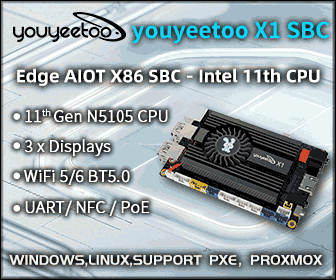Suptronics X200 Raspberry Pi Model B+ Expansion Board Adds Wi-Fi, RTC, VGA, optical S/PDIF, USB ports, Servo Support, and More
The Raspberry Pi is a nice little board, but in some cases you may want to add some extra ports. Suptronics released the X100 expansion board for Raspberry Pi Model B last year, and they’ve now come up with a little monster called X200 expansion board for Raspberry Pi Model B+ which adds Wi-Fi, a real-time clock + battery, a VGA port, optical S/PDIF output, 3.5 mm mic and audio jack, servo support (ULN2803), and a few USB ports to the low cost board. Key features of X200 expansion board: Input Voltage – 6V to 21Vdc converted to 5V, 3A via step-down DC/DC converter to power the Raspberry Pi. VGA output – HDMI to VGA converter supporting up to UXGA (1600×1200) and 1080p with 10-bit DAC Audio – 3.5mm MIC in jack, 3.5mm stereo audio jack, S/PDIF output, audio I/O connector (Microphone input and stereo audio amplifier 3.3Wx2) Connectivity – […]





